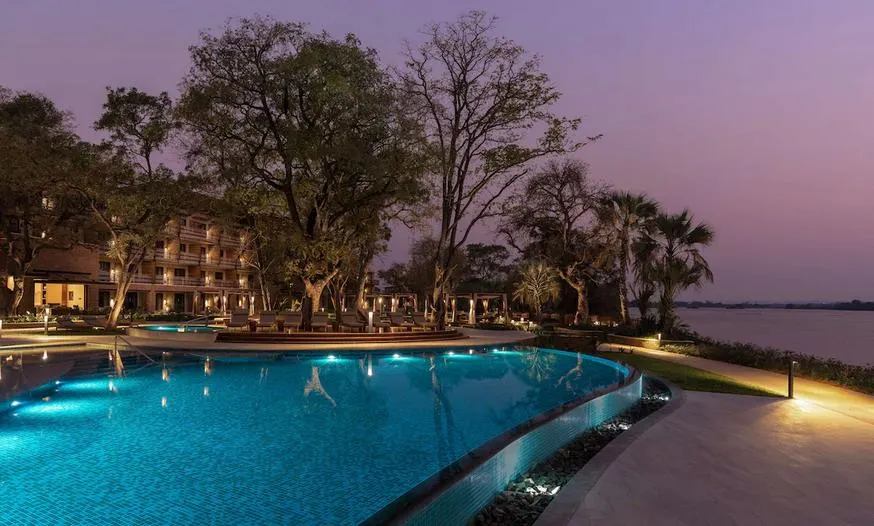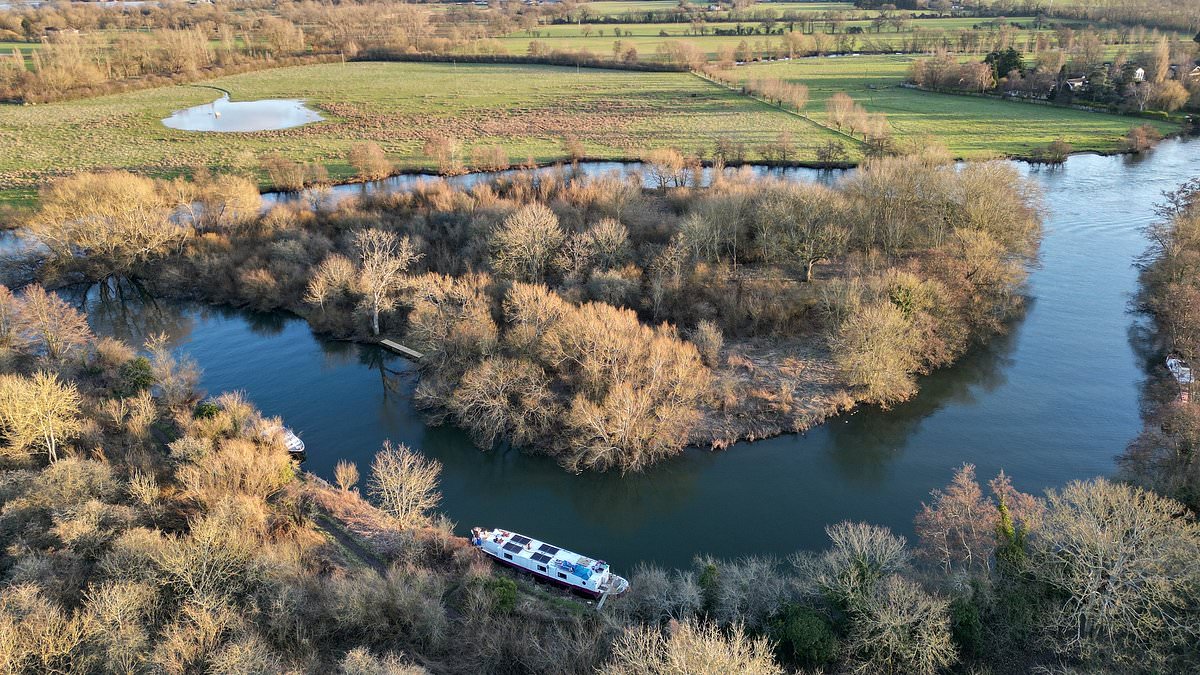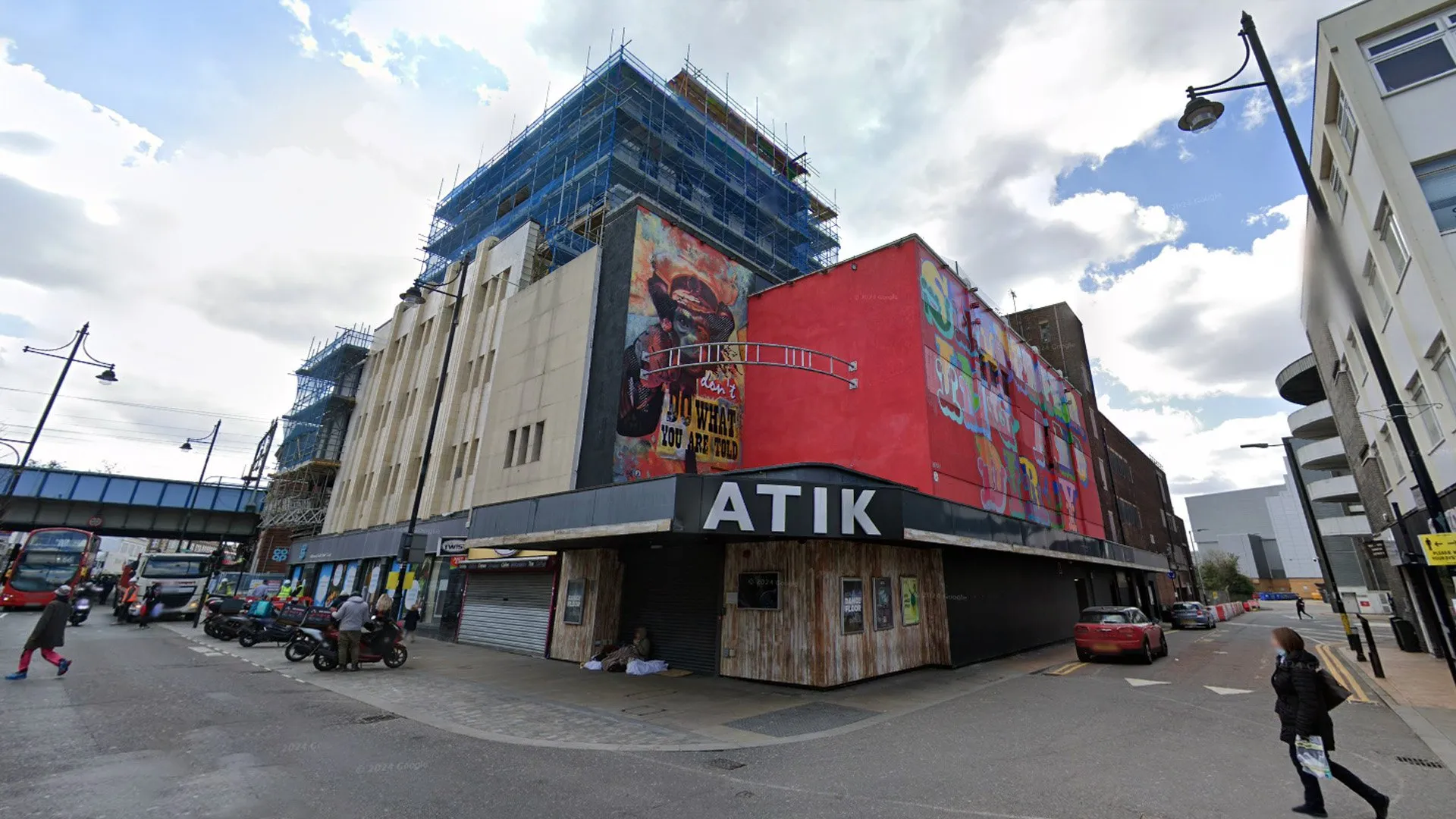Copyright forbes

Radisson Blu Mosi-oa-Tunya Livingstone Resort on the Zambezi River in Zambia, near Victoria Falls. The Radisson hospitality brand has been in significant growth mode, especially in the past decade. In 2022, Choice Hotels acquired Radisson Hotel Group Americas with the rest of its international portfolio remaining under Radisson. From adding brands in its upscale and luxury portfolios to expanding its global reach, Radisson has matured to compete with the top hospitality brands. Much of this significant expansion has been outside of the United States where its Radisson Blu, Radisson RED and Radisson Collection hotels are highly regarded in Europe, the Middle East, Asia and Africa, often in the luxury tier of their respective destinations. In fact, it is the company’s growth spurt on the African continent that is giving it a competitive advantage in the region. Radisson RED V&A Waterfront, Cape Town Radisson earned top billing in W Hospitality Group’s “From Pipeline to Reality” report for 2024, which highlights the fact that Radisson had more hotel openings in Africa than any other hospitality group. In only 15 months, it has opened seven new hotels representing around 1,500 rooms with 11 new hotels in the pipeline adding another 2,000 rooms to its property list. Business Insider Africa reports numbers from W Hospitality showing growth in African hotel development represents a 13.3% growth over the year before. And clearly, Radisson wants a seat at the table, besting other hotel groups for growth in the region. Radisson Residences Cairo Heliopolis, which includes serviced apartments Its leading net operating growth over the past year, just for its African pipeline, has been up 50% proving that it delivers on its hotel opening timelines. “Africa is one of the world’s most diverse and promising hospitality markets,” says Elie Younes, executive vice president & global chief development officer at Radisson Hotel group. “We see strong demand in key cities and fast-emerging regional hubs, and our developments continue to create jobs, uplift communities, and contribute to long-term economic value.” Where Radisson is and where it’s going Radisson Safari Hotel Hoedspruit in South Africa, which has daily game drives Radisson has been in growth mode for several years on the continent. It has opened new hotels in Cairo; Casablanca; Conakry, Guinea; Hoedspruit, South Africa; and Tunis among others. Coming soon are a slew of new hotels in Casablanca and Taghazout Bay, Morocco; Benin City, Nigeria; and the Bay of Algiers in Algeria. That’s not to mention its tremendous growth in the Middle East (a region that is often grouped in with Africa for many hospitality companies) with hotels opening in Kuwait City; Muscat, Oman; Jeddah, Riyadh, Madinah and Mekkah, Saudi Arabia; Dubai and Fujairah, United Arab Emirates. A bungalow at the Radisson Blu Resort, Taghazout Bay Surf Village in Morocco In the W Hospitality Group analysis, Egypt makes up a third of the development pipeline, but West Africa takes second place with 13 of the 16 countries in the region on the radar for hotel groups. Along the Indian Ocean coast and in southern Africa, a dozen countries will see development with the Comoros Islands and Somalia expecting new properties soon. Morocco and Nigeria are also strong for hospitality growth potential. A conversion property, the Radisson Blu Hotel, Conakry, Guinea, opened just three months after being signed as a Radisson Blu hotel. “Many countries are undergoing major transformation, with significant improvements in infrastructure, accessibility, and transportation, positioning them as future leisure and business destinations,” says Younes. “Our goal is to grow from 100 hotels today to 150 hotels across Africa by 2030, a reflection of both our confidence in the continent’s potential and our long-term commitment to its development.” A challenging marketplace In many African capital cities, Radisson properties are the market leader and a preferred choice by visiting diplomats and business travelers. Radisson Blu Hotel, N'Djamena, Chad Africa presents several unique challenges to hotel companies looking to open new properties in these markets, however. Some destinations are more developed than others, and many have the type of bureaucratic red tape that could send interested investors running. Matthew Renshaw, senior director project & development services Sub-Saharan Africa for JLL, points to the fact that local partnerships are key in these types of markets, especially when it comes to “understanding specific cultural nuances and market demands.” Radisson Hotel, Lagos Ikeja in Nigeria Younes highlights that it is exactly this strength that has positioned it for success: “Over the years, we’ve built deep trust with our partners and governments across the continent, a foundation that has allowed Radisson Hotel Group to accelerate its growth there.” Lee-Anne Singer, partner, Southern Africa Consulting, HVS Middle East & Africa, points to problems that often come with delivery bottlenecks where new hotels are not completed within their timeframe (or at all). She says that local expertise is key to keep things on track, highlighting the typical 2-3 year development cycle for a hotel (that extends to 4-5 years on the continent). Radisson Blu Gautrain Hotel, Sandton Johannesburg is a business traveler favorite because it is adjacent to the Gautrain station, which goes directly to the airport and national capital of Pretoria. The hotel has expansive meeting facilities and an executive level with club lounge. “Naturally, challenges exist,” acknowledges Younes. “Development timelines can be influenced by infrastructure readiness, access to financing, and complex regulatory frameworks. We address these with local expertise, flexible investment models, and transparent collaboration with our owners and stakeholders. The success of our recent openings is a testament to this approach.” Conversions of existing properties under other brands can speed things up by adding them to the Radisson family in less time than starting from scratch. These include hotels in Conakry, Mauritius and Tunis. Singer says Radisson’s approach of having a mix of conversions, new builds, and partnerships in both primary and secondary markets has helped it to grow. Radisson Collection Hotel, Waterfront Cape Town Radisson has also looked inward and taken some of its high-performing hotels in notable locations and moved them up a notch. For example, one Radisson Blu property in Cape Town has long been popular for being one of the few hotels that is directly on the water. Following a thorough renovation and investment project, the Radisson Blu joined its top-tier Radisson Collection brand, which counts other notable properties around the world like Cour des Loges in Lyon, France, The May Fair in London and Palazzo Nani Venice. Radisson Collection Hotel, Waterfront Cape Town Radisson Collection Hotel, Waterfront Cape Town is one of the few in the city with waterfront meeting venues and is within walking distance of the V&A Waterfront area (there is also a free shuttle). It’s so close to the ocean that occasionally, sea otters and penguins pay a visit to its dining patio and infinity-edge pool. Other upscale touches include a complimentary wine and cheese hour four nights a week for guests and a large spa with 11 treatment rooms, an indoor heated pool, Rasul treatment area and Himalayan salt room. Newer design brands fill market gap The Mirage restaurant at Radisson Safari Hotel Hoedspruit in South Africa According to Renshaw, there is significant interest in lifestyle and design hotels in Africa. They proliferate on a global scale, but are more limited on most of the African continent, which is where Radisson has great opportunity. Renshaw highlights the interest in trendy bars and nightclubs, rooftop lounges, over-the-top gyms, lobby art galleries and fancy restaurants, all of which create social destinations out of these hotels. The rooftop pool and food truck at Radisson RED V&A Waterfront in Cape Town Radisson is able to meet this growing interest and demand with several of its design brands like Radisson RED and Radisson Blu. These include properties like Radisson RED hotels on the V&A Waterfront in Cape Town and Johannesburg’s Rosebank neighborhood. It is also paying greater attention to the resort market in Africa where hotels like the Radisson Blu Mosi-Oa-Tunya, Livingstone Resort in Zambia, Radisson Safari Hotel Hoedspruit in South Africa and Crystals Beach Resort Belle Mare, a member of Radisson Individuals, in Mauritius complement its business hotels elsewhere. Radisson Blu Poste Lafayette Resort & Spa, Mauritius The Radisson Rewards program is another tool it uses to build brand awareness and engage with customers. While it lacks a co-branded credit card partner, members can still earn points in many ways beyond hotel stays like online shopping with partners or renting cars. Some hotels feature entertaining game show-like wheels where members can spin for a prize like bonus points, free drink vouchers or room upgrades. There are also “pop a balloon” prizes and special welcome areas with complimentary snacks and gifts in many hotels. The pool bar by the Zambezi River at Radisson Blu Mosi-oa-Tunya Livingstone Resort near Victoria Falls Younes is bullish about the region’s growth, saying that he expects the company to have 150 hotels there by 2030, up from 100 today. “Our vision for Africa extends well beyond our current pipeline. We remain confident that Africa will continue to be one of the most dynamic growth regions for Radisson Hotel Group.” Singer sees similar potential. “The opportunity for growth across Africa remains strong,” she says. “By pursuing diversified regional portfolios to balance risk and capture emerging demand, Radisson has established a significant footprint across the continent.” MORE FROM FORBES ForbesThe New ‘Mileage Run:’ How To Reach 2026 Delta Medallion Status With More Than Just FlightsBy Ramsey QubeinForbesBeetlejuice Suite, 20,000 Bonus Points And New Hotel Perks This FallBy Ramsey QubeinForbes7 Exciting, Free Travel Contests Worth Entering This MonthBy Ramsey Qubein Editorial StandardsReprints & Permissions



